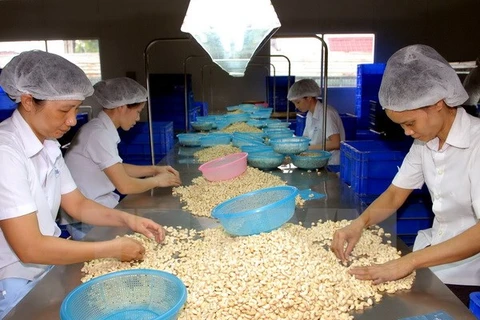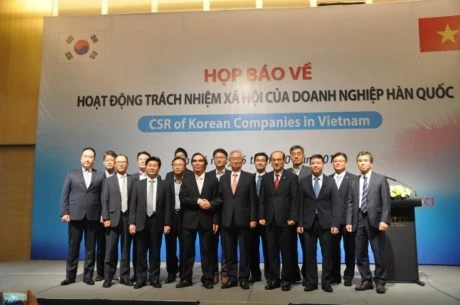 Processing tra fish for export at the Hung Ca Co. Ltd in Cao Lanh city, Dong Thap province (Photo: VNA)
Processing tra fish for export at the Hung Ca Co. Ltd in Cao Lanh city, Dong Thap province (Photo: VNA) Hanoi (VNA) – The enhanced practice of social responsibility will help improve the competitiveness, prestige and brand of the fisheries industry, which is now a hard currency earner of Vietnam.
At a workshop in Hanoi on December 28, Dinh Xuan Lap from the Vietnam Fisheries Society elaborated that amidst the growing integration trend, social responsibility is required by many seafood import markets such as Europe, America and Japan. The issue is even more important and compulsory when Vietnam joins the Trans-Pacific Partnership (TPP) agreement.
Though Vietnam’s aquatic products have entered over 160 countries and territories, the industry is still facing an array of problems, including environmental pollution, diseases on cultured aquatic species, high post-harvest loss, unhygienic food, and undue attention to labourers’ rights and interests.
Social responsibility has been practiced at 30 percent of the aquatic product processing factories while being almost ignored in aquaculture and fishing activities, workshop participants noted.
Nguyen Huy Dien, Deputy General Director of the Directorate of Fisheries, said though Vietnam has complied with a number of the FAO’s responsible fisheries rules, it still encounters obstacles due to the limited awareness and different viewpoints of the sector’s insiders.
Foreign partners also requested the Vietnamese side adhere to the sense of social responsibility at negotiations relating to international standards like ASC, BAP and GlobalGAP, he added.
At the function, attendees said to promote social responsibility practice at processing plants, aquaculture farms and on fishing ships, it is needed to firstly find out and address inappropriate issues regarding working time, preferential treatment to female workers, and labourers’ insurance.
That will help Vietnam’s fisheries sector strengthen its export competitiveness and satisfy importers’ requirements, they added.-VNA





















